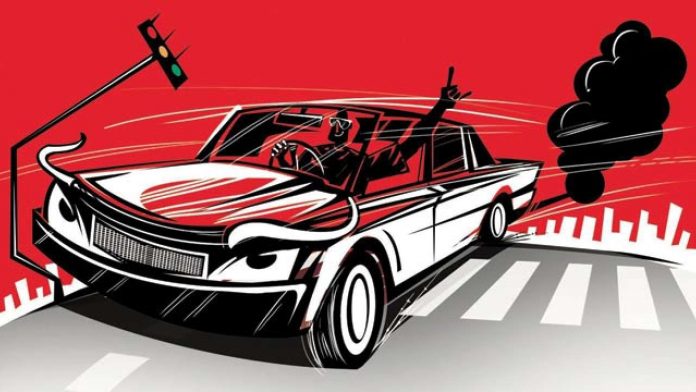The Supreme Court has set aside a 2008 decision of the Gauhati High Court, wherein the High Court had held that a person who is accused of the offence of over speeding, dangerous driving, and other related offences under the Motor Vehicles Act, 1888, cannot be prosecuted under the Indian Penal Code (IPC).
The High Court had made a finding that an offender cannot be prosecuted under two statues, i.e. the Motor Vehicles Act, and the IPC.
The Supreme Court, per its two-men Bench consisting of Justice Indu Malhotra, and Justice Sanjiv Khanna, has now established that a person who is accused of committing motor vehicle-related offences can be punished under the Motor Vehicles Act, as well as prosecuted under the Indian Penal Code.
According to the Justices, the Motor Vehicle Act, and the Indian Penal Code are separate statues and “operate with full vigor in their own independent spheres”. The Motor Vehicle Act does not place a bar on the prosecution of motor vehicle-related offences under the IPC.
The Court pointed out that:
- The provisions of the Motor Vehicles Act and that of the IPC are not in conflict.
- Both statutes have prescribed different ingredients for establishing the motor vehicle offences under them.
- Both statutes have also prescribed independent and distinct penal sanctions for offenders.
Thus, the principle that special law overrides a general law, does not apply in the prosecution of road accident offenders under the Motor Vehicle Act, and the IPC.
The Supreme Court further pointed out that:
- The Motor Vehicles Act does not make provisions on motor vehicle accidents which cause hurt, grievous hurt, or death, neither does it prescribe any penal sanction for these types of accidents. However, the IPC makes provision and penal sanction for these kinds of offences – section 279, 304, 337, and 338 of the IPC.
The Supreme Court also observed that:
- The penal sanctions under the IPC is stricter than that obtainable under the Motor Vehicles Act.
Six (6) months is the maximum imprisonment for first-time offenders under the Motor Vehicles Act, whereas, under the IPC, imprisonment for road traffic offense can attract up to ten (10) years imprisonment, under Section 304 of the IPC.
- The offences under the Motor Vehicles Act are compoundable, whereas those under the IPC, specifically section 279, 304, and 304A, are not compoundable.
Thus, the IPC provides the avenue for thoroughly punishing offenders, and prevents an offender from getting away from prosecution by merely pleading guilty and paying a fine.
Therefore, an offender can be tried and punished independently under the Motor Vehicles Act, and the Indian Penal Code.





